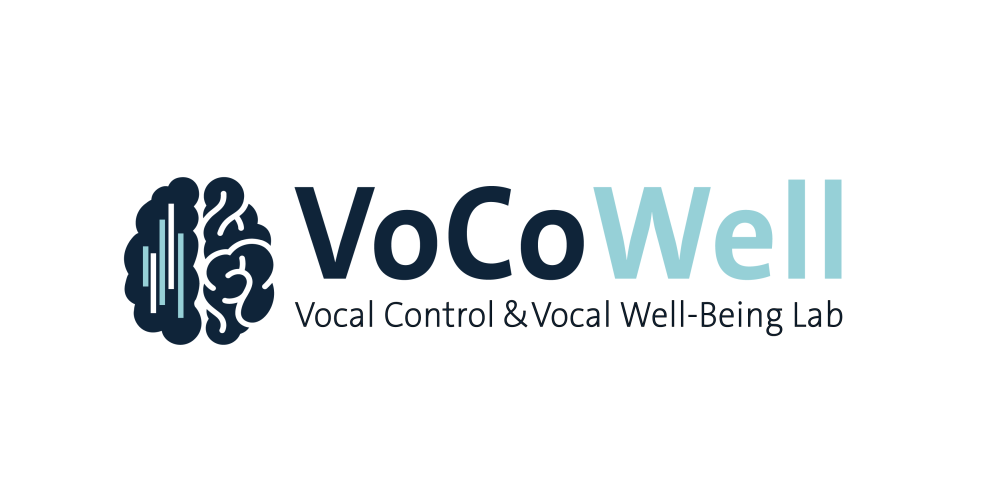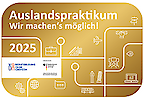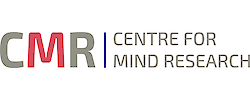Vocal Control and Vocal Well-Being
 The WG is part of the department's clinical and research focuses on stress, trauma sequelae, and dissociative disorders.
The WG is part of the department's clinical and research focuses on stress, trauma sequelae, and dissociative disorders.
The VoCoWell Lab focuses on how individuals differ in their vocal control and vocal behavior as a function of stressor exposure and personality and the resulting implications for risk for voice disorders. The research will help to determine what constitutes vocal resilience and how to improve vocal well-being. Research methods encompass basic and clinical voice science and psychophysiological and neuroimaging methods. In addition to studying vocal control in vocally healthy individuals, the VoCoWell Lab is interested in patients with functional dysphonia and aphonia, primary muscle tension dysphonia, and occupational voice users such as teachers and student teachers. The research program aims to contribute to an evidence-based biopsychosocial model of risk for voice disorders that informs innovative screening, prevention, and treatment approaches.
Projects/Studies
- Neurobiological and psychobiological signatures of vocal effort in early career teachers
- Emotion regulation in people with functional voice disorders
- Classifying neck surface EMG signals for the early detection of vocal fatigue in student teachers
- Classification of voice and speech signals for the detection of psychiatric disorders
Methods
The research methods include basic and clinical voice science with people with and without voice disorders, as well as psychophysiological and functional imaging methods.
Funding
- National Institutes on Deafness and Other Communication Disorders (NIDCD)
Team
- Director: Dr. Maria Dietrich
- Postdoc: Dr. Lisa Sindermann (https://orcid.org/0000-0002-3186-2100)
Dr. Lisa Sindermann is a postdoctoral researcher in the Vocal Control and Vocal Well-Being Lab (VoCoWell Lab) under the supervision of Dr. Maria Dietrich in the department of Psychiatry and Psychotherapy at University Hospital Bonn (UKB) in Germany. - Medical doctoral student:
- Katrin Blum, cand. med.
- Student and research assistants:
- Clara van Ahlen, M.Sc.
- Rabea Behrens
- Sarah Breusch, M.Sc.
- Benjamin Rehring, M.Sc.
- Miro Armati Lechner, B.Sc.
- Gracia Mühlbauer
- Bastian Overhage
- Guest researcher
- Juliane von der Heyde, MSc
- Former members:
- Burcu Gelin, M.Sc.
- Dana Hurtenbach
- Hannah Moser, M.Sc.
- Dr. Mark Berardi
- Anna Zhukova, B.Sc.
- Jeannine Bussjäger
- Simon Draber
- Felix Kleen
Open positions
Please send us a mail if you want to join our team:
Studyflyer
- Trainee teachers with voice fatigue wanted (ger)
- Study participants sought without voice fatigue
- Study of emotional processing in functional voice disorders (wanted: healthy subjects)
- Study of emotional processing in functional voice disorders (wanted: patients with functional voice disorder)
Collaborations
- Sektion für Phoniatrie und Pädaudiologie, Klinik und Poliklinik für Hals-Nasen-Ohren-Heilkunde, UKB
- Dr. Antonia Nolte
- Dr. Dr. Peggy Herrmann
- Gerontopsychiatry, UKB
- Dr. Friederike Schröck
- WG translationale imaging in psychiatry, UKB
- Prof. Dr. Axel Krug
- Vision Guided and Intelligent Robotics Lab (ViGIR Lab), Electrical Engineering and Computer Science, University of Missouri
- Guilherme DeSouza, Associate Professor
- Yixiang Gao, doctoral student
- Voice Emotion and Cognition Laboratory, School of Communication Sciences and Disorders, University of Memphis
- Miriam van Mersbergen, Associate Professor
- Voice Research Laboratory, Faculty of Health Sciences, University of Sydney
- Cate Madill, Associate Professor, Speech Pathology and Director of Doctor Liang Voice Program


















